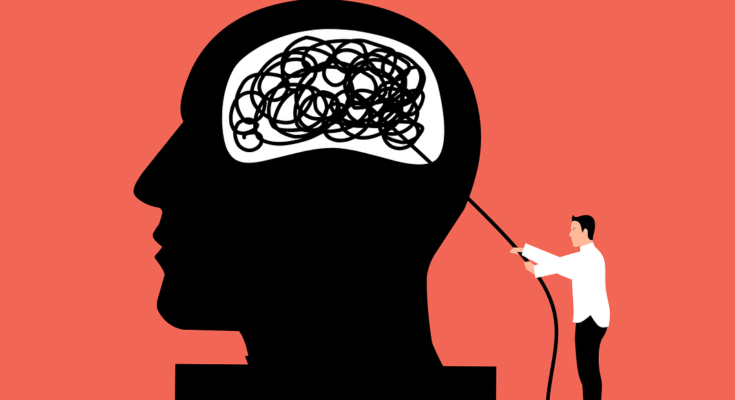“We are slaves, deprived of every right, exposed to every insult, condemned to certain death, but we still possess one power, and we must defend it with all our strength for it is the last – THE POWER TO REFUSE OUR CONSENT.”
Survival in Auschwitz by Primo Levi is a seminal work that provides a stark portrayal of the psychological ramifications of extreme trauma and oppression on the human psyche.
The author’s firsthand account of the Holocaust serves as a poignant reminder of the unprecedented resilience and hope that can arise in the face of adversity.
Let’s explore 4 key psychological themes and lessons from the book that are relevant to understanding the human psyche. These include:
- The Power of Hope,
- Interpersonal Relationships and The Human Connection,
- The Long-term Impact of Trauma on Mental Health.
- The Concept of Survival Guilt.
4 Powerful Psychological Lessons from Survival in Auschwitz:―
1. The Power of Hope:
Psychological Theory:― Optimism Bias
Despite the horrific conditions in Auschwitz, Levi and other prisoners found ways to hold onto hope and maintain their humanity.
In the book, Levi writes:
“We were all saved by a collective hope, a hope of revenge, a hope of liberation, a hope of seeing our families again.”
This is an example of Optimism Bias, a cognitive bias in which individuals overestimate the likelihood of the occurrence of positive events and underestimate the likelihood of negative ones. Optimism bias can actually be helpful in a traumatic situation by providing individuals with a sense of hope and motivation to overcome challenges.
2. The Psychological Impact of Trauma:
Psychological Theory:― Post-Traumatic Stress Disorder (PTSD)
Levi’s experiences in Auschwitz profoundly impacted his mental health, and he struggled with PTSD.
In the book, Levi writes:
“The experience of the Lager [camp] is not described, it is stored up”
These words illustrate the insidious and indelible effects of concentration camp trauma on the mental health of survivors, as evidenced by Levi’s personal narrative. It highlights the residual trauma that can be ‘stored up’ within individuals long after the traumatic event has passed, and the challenge of putting such overwhelming experiences into words.
PTSD is a psychological condition that can develop after someone experiences or witnesses a traumatic event. Symptoms include flashbacks, nightmares, avoidance of reminders of the event, and emotional numbing.
3. Interpersonal Relationships as Coping Mechanism
Psychological Theory:― Interpersonal Relationship
The crucial role of interpersonal relationships and Social support in facilitating resilience is also exemplified by the survival strategies employed by Levi. His ability to forge connections with fellow inmates served as a vital coping mechanism, enabling him to endure the dehumanizing conditions and psychological toll of the Holocaust.
In the book, Levi writes
“I realized that human relationships were the only thing that sustained us”
This is consistent with the Interpersonal theory which states that having a strong support network of friends and family can greatly help humans cope and recover from a traumatic experience. Empirical evidence also substantiates that individuals with robust support systems exhibit a higher propensity toward recovery.
4. The Psychological Impact of Survivor’s Guilt:
Psychological Theory:― Survivor Guilt
Levi’s experiences in Auschwitz deeply impacted his mental health, and he struggled with survivor guilt for the rest of his life, which is consistent with the psychological concept of survivor guilt.
In the book, Levi writes:
“I felt guilty for having survived, for not having suffered enough” and “I felt guilty for having survived, for not having been killed.”
He also states,
“I felt guilty for having slept in a warm bed, for having enough to eat, for not having been beaten or killed.”
Survivor’s guilt is a prevalent psychological construct where an individual feels guilty for surviving a traumatic event while others did not, It is often seen in individuals who have survived some catastrophic events such as war, natural disasters, or other life-threatening situations.
It can manifest in various ways such as depression, anxiety, and feelings of worthlessness.
Grab Your Copy Here ― Amazon In | Amazon US
The Best Books: Recommended Reading Lists
1. Best Books That Teach the Art of Living a HAPPIER LIFE
2. Best Books on STOCK MARKET & INVESTING
3. Best Books To Help You Find HOPE During Your Darkest of Times
4. Best Books on Learning & Mastering SONGWRITING
5. Must-Read Books on Punjab’s History and Culture
6. Best Books That Talk about Sologamy
8. Alan Watts Books That Talk About Human Existence
9. From Ph.D. To Industry: 4 Best Books To Aid Your Transition
That’s all we have for today.
Thanks a lot for tuning in to HappinessDhaba. Do let me know your views on this in the comment section.
Signing off with my favourite words
Zindagi Zindabad!
Author Profile

Recent Posts
 The Punjabi LiteratureJuly 14, 2025Paash on the Death of Dreams ― Sab Ton Khatarnak
The Punjabi LiteratureJuly 14, 2025Paash on the Death of Dreams ― Sab Ton Khatarnak Blog PostsApril 6, 2025Rebuilding Identity After The Self Falls Apart | by Jasmeet
Blog PostsApril 6, 2025Rebuilding Identity After The Self Falls Apart | by Jasmeet Book Summaries & LessonsFebruary 6, 2025BURN IT ALL: Kafka’s Legacy and the Friendship That Saved It
Book Summaries & LessonsFebruary 6, 2025BURN IT ALL: Kafka’s Legacy and the Friendship That Saved It Life Through SongsJanuary 20, 20259 Best Punjabi Heer Ranjha Songs ― The Modern Playlist
Life Through SongsJanuary 20, 20259 Best Punjabi Heer Ranjha Songs ― The Modern Playlist








